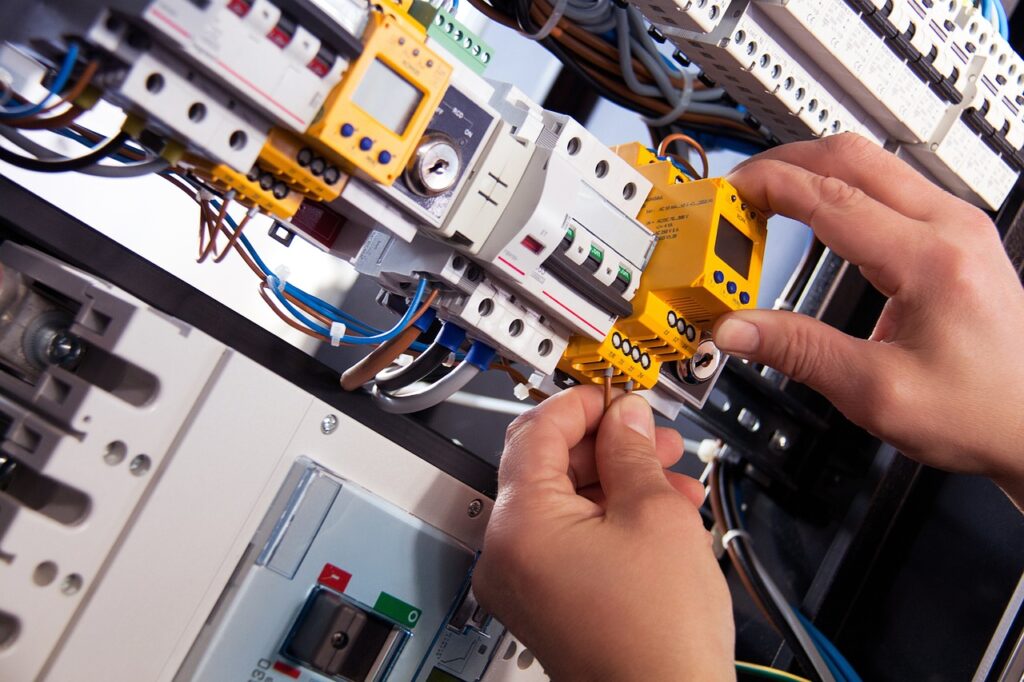
Before you attempt to work on your boat’s wiring, keep these tips in mind and consider hiring a professional marine electrician.
Wiring a boat can seem like a simple job for a boat builder. After all, the principles of electricity don’t change when you’re on the water. But some concerns come with any marine wiring job. Electrical work is complicated; it will always require expertise and care to master. A few small mistakes can lead to short-circuiting, sparking, electrocution, and fire. Once water is added to the mix, things get even more complex. So before you attempt to work on your boat’s wiring, keep these tips in mind and consider hiring a professional marine electrician.
Safety is Priority
Constructing an electrical system for a boat starts and ends with safety. Remember that you’ll have to design a system that is easy to use and is protected by the elements with minimal engineering. Circuit protection and proper insulation are critical with any marine craft.
Protect Your Wiring from the Elements
A boat’s wiring is at constant war with the elements. Water alone can corrode wiring, short out improperly insulated or exposed system components, and wreak havoc on any electrical system. If you sail on saltwater, you must factor in the constant attack of salinity. An experienced marine electrician knows that parts of a boat that barely see water can quickly wear out when on the ocean.
While fighting off the sea is impossible, you can limit the damage with proper wiring technique. Ensure your electricians only strip enough insulation from any wire to give them the amount needed to crimp a connection. Weatherproofing is also essential and should be done in case the worst should happen.
Use the Appropriate Wires
You should only use marine shore power cords capable of handling your boat’s power load, labeled “UL-Marine.” The amperage and voltage you need will depend on the size of your boat. Use the set appropriate for your boat. If you use a 30-amp set for a 50-amp system, the less powerful set will fail over time from overheating.
Be sure to use marine service plugs and connectors, and don’t use regular outdoor extension cords. Marine shore power cords are designed to withstand the conditions of water-based environments. Still, you should check that cord regularly to ensure it is free of knots and frayed areas. Don’t tape damaged areas; instead, replace damaged or deteriorated extension cords immediately.
Call the Professionals
Proper installation, good parts, and basic maintenance guarantee that your wiring will last years. In addition, if a system does fail, a marine electrician can make it more likely to fail safely. They can also create a proper inspection and maintenance routine to help catch problems before they become serious.
Electrical disasters are dangerous, especially when around water. They also have the potential to be expensive; a dock fire can catch nearby buildings and boats ablaze. There is no excuse for not hiring a certified marine electrician to ensure you avoid such issues.
Marine Electric Systems, LLC is a Leader In the Maritime Industry
We here at Marine Electric Systems have over 30 years of industry experience. You can trust our team for reliable service and expert craftsmanship in the Maryland, Baltimore, Annapolis, and Baltimore city areas! We’re highly certified and adhere to all ABYC and NMEA regulations. We specialize in top-notch electrical solutions for recreational, commercial, and government boating clients. Anything from electrical refits, to navigation systems, or boating maintenance. To stay up to date on our services, follow us on Facebook, LinkedIn, Pinterest, Instagram, and YouTube. You can also contact us at 410-263-0807.
